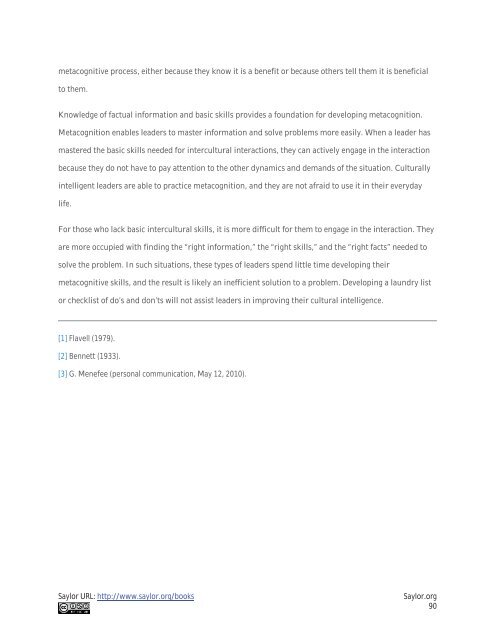Leading with Cultural Intelligence, 2012a
Leading with Cultural Intelligence, 2012a
Leading with Cultural Intelligence, 2012a
You also want an ePaper? Increase the reach of your titles
YUMPU automatically turns print PDFs into web optimized ePapers that Google loves.
metacognitive process, either because they know it is a benefit or because others tell them it is beneficial<br />
to them.<br />
Knowledge of factual information and basic skills provides a foundation for developing metacognition.<br />
Metacognition enables leaders to master information and solve problems more easily. When a leader has<br />
mastered the basic skills needed for intercultural interactions, they can actively engage in the interaction<br />
because they do not have to pay attention to the other dynamics and demands of the situation. <strong>Cultural</strong>ly<br />
intelligent leaders are able to practice metacognition, and they are not afraid to use it in their everyday<br />
life.<br />
For those who lack basic intercultural skills, it is more difficult for them to engage in the interaction. They<br />
are more occupied <strong>with</strong> finding the “right information,” the “right skills,” and the “right facts” needed to<br />
solve the problem. In such situations, these types of leaders spend little time developing their<br />
metacognitive skills, and the result is likely an inefficient solution to a problem. Developing a laundry list<br />
or checklist of do’s and don’ts will not assist leaders in improving their cultural intelligence.<br />
[1] Flavell (1979).<br />
[2] Bennett (1933).<br />
[3] G. Menefee (personal communication, May 12, 2010).<br />
Saylor URL: http://www.saylor.org/books<br />
Saylor.org<br />
90


















